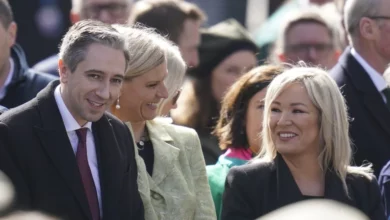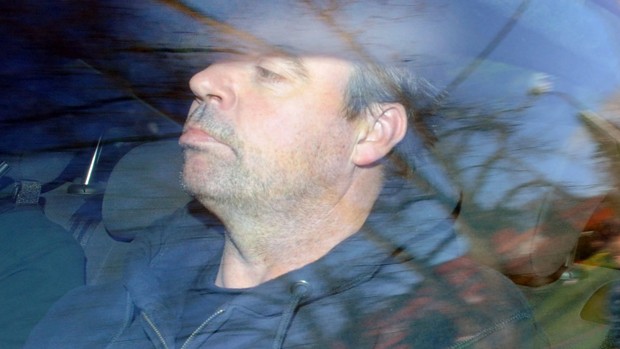Archivi del Boston College: Combattere per la riservatezza
Fighting for Confidentiality
 The legal fight over access to oral history records at Boston College — a battle that some historians worry could limit their ability to conduct interviews on sensitive topics — is escalating.
The legal fight over access to oral history records at Boston College — a battle that some historians worry could limit their ability to conduct interviews on sensitive topics — is escalating.
The British government, which has been seeking access to some of the records in an oral history collection about the violence in Northern Ireland, has expanded its requests, prompting a new bid by the college to quash that move. Further, the researchers who conducted the interviews are now seeking to enter the case, taking a more aggressive approach to the proceedings than the college has to date, and more directly attacking how the U.S. Justice Department has backed the British government’s requests.
The case has been in federal court for months, with Britain citing U.S. treaty obligations to aid legitimate law enforcement efforts by an American ally. Boston College, and many historians, say that Britain is overreaching, and that the United States can legitimately weigh the impact of releasing the documents on academic freedom in considering whether to comply with the British request. To date, the U.S. Justice Department has rejected the idea that academic freedom is a relevant issue, and has pushed a federal court to force Boston College to release the documents.
People who conduct oral history interviews do not have the ability to offer legally protected pledges of confidentiality that, for example, a physician may offer a patient, or a lawyer a client. But many historians – especially those gathering material on topics such as the violence in Northern Ireland — routinely do make pledges of confidentiality, and report that interview subjects insist on such promises. Typically these pledges expire after an agreed number of years, or after the deaths of interview subjects or those discussed in the interviews — so these documents eventually become public in full.
The latest subpoena submitted on behalf of the British government is notably broader than the first one. The initial request asked for documents related to the interviews of two individuals, one of whom died after he gave the oral history interview (ending the confidentiality pledge) and another whose oral history interview was public knowledge already. The new request asks for all records that relate to a single incident – “the abduction and death of Mrs. Jean McConville.”
From Boston College’s perspective, it argues in a new brief, this request raises issues that hinder any academic institution’s ability to house confidential materials. The college, the new brief asserts, doesn’t even know how many records it has that might relate in any way to that death. So the request would force the college to effectively review all its collections for the purpose of violating the confidentiality rights of an unknown number of people. And the college notes not only that that might violate the confidentiality of an unknown number of people, but that such actions could “potentially prejudice the safety” of these individuals.
With some individual interviews having resulted in hundreds of pages of transcripts, this process would impose “a substantial burden” on the college, its new brief says.
The latest subpoena has also prompted two new individuals to enter the case — this time speaking not as the institutional home for an oral history collection, but as the oral history experts who gathered the information for the Belfast Project, the name of the disputed research effort.
 Ed Moloney and Anthony McIntyre, the researchers, while technically backing Boston College, take a much more combative position in the case. They argue that the treaty under which British authorities are seeking the documents was premised on British pledges not to use the treaty for seeking cooperation on “politically related offenses” that were resolved by the 1998 Good Friday Agreement, a key accord in bringing peace to Northern Ireland. The materials in the Belfast Project predate that agreement.
Ed Moloney and Anthony McIntyre, the researchers, while technically backing Boston College, take a much more combative position in the case. They argue that the treaty under which British authorities are seeking the documents was premised on British pledges not to use the treaty for seeking cooperation on “politically related offenses” that were resolved by the 1998 Good Friday Agreement, a key accord in bringing peace to Northern Ireland. The materials in the Belfast Project predate that agreement.
Before trying to enforce the British request, this brief argues, the U.S. government had an obligation to consider these pledges, and to resist violating them. The U.S. has “failed” to carry out its responsibilities, the brief from Moloney and McIntyre argues, and should be forced to do so – or to reject the British request.
Chris Bray, a historian who has been blogging about the case at Cliopatria (in favor of resisting the British request), wrote last week that the new brief in some ways changes the equation. While Bray has applauded Boston College for fighting the British request, he characterized its efforts as “politely” making their case. The college’s briefs represent “a careful and modest courtroom effort without a corresponding political or public relations campaign,” he wrote.
In contrast, Moloney and MacIntryre are raising “the political nature of the underlying investigation and directly accusing the DOJ of serious professional failures,” Bray wrote, suggesting that such an approach may be needed to protect the oral history records in question.
A spokesman for Boston College told The Boston Globe about the new brief: “We obviously share the same goal in the outcome of this matter, but these filings, which we are just now reviewing, may not necessarily reflect the views of Boston College.”





